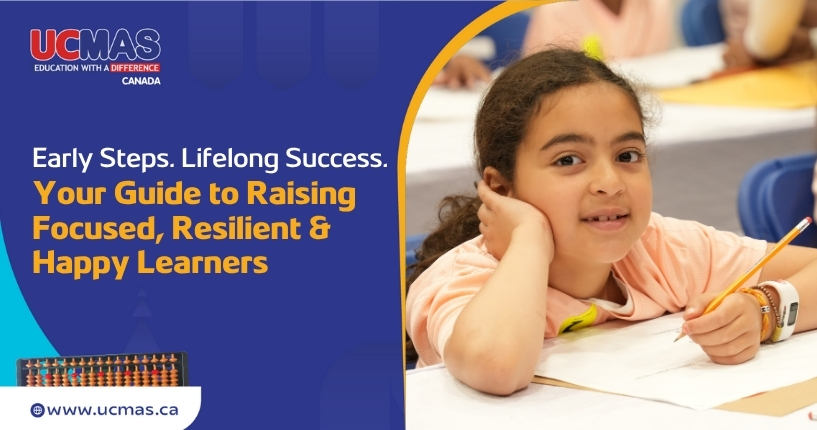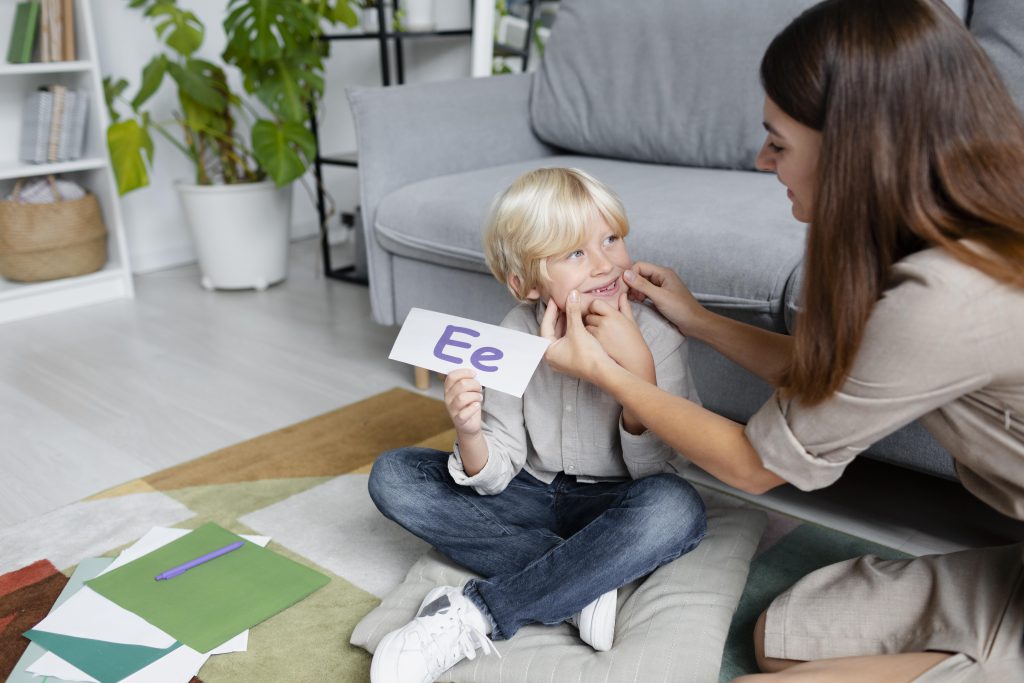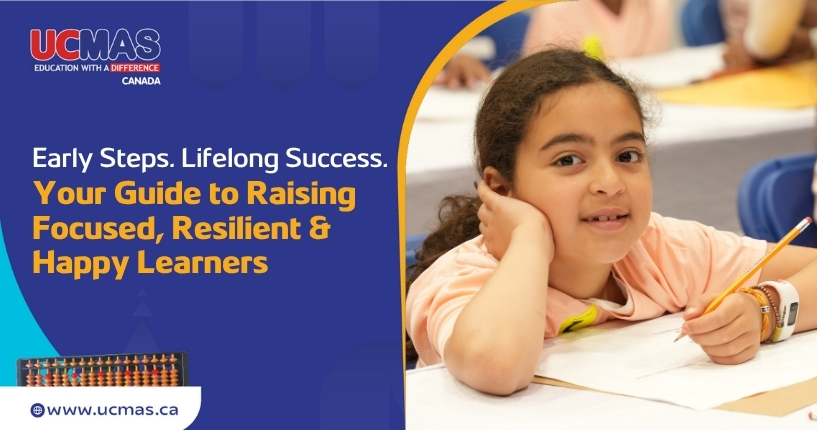
Every parent wants to see their child thrive, not just academically, but socially, emotionally, and intellectually. But success doesn’t start in high school, or even in middle school. It begins much earlier, in the foundational years of early childhood. These are the years when the brain is developing most rapidly, when habits are formed, and when children begin to make sense of the world around them.
It’s in these years that your involvement as a parent matters the most. That’s also where structured support programs like UCMAS step in. UCMAS isn’t just math tutoring; it’s a globally recognized program that strengthens a child’s memory, concentration, and problem-solving abilities through innovative abacus classes and mental math training. When combined with a parent’s consistent support, the results can be truly transformative.
Let’s explore the best strategies that can help you set your child up for long-term success through early childhood education.
Foster Cognitive and Language Development Through Everyday Interactions
Turn Talk Time Into Learning Moments
From naming colors in the grocery store to narrating your day while cooking dinner, everyday moments can be learning goldmines. Engage your child in frequent conversations. These don’t have to be complex; simply talking about what you see, hear, and feel builds vocabulary and cognitive connections.

Encourage Curiosity Through Questions and Exploration
When your child asks, “Why is the sky blue?”, take it as a cue to dive into discovery together. Don’t rush to give answers. Instead, guide them to think critically. Ask what they think, explore a picture book, or watch an age-appropriate video together. Curiosity fuels cognitive growth.
Read Aloud, Sing Songs, and Play Word Games
Reading aloud from an early age supports language acquisition, emotional bonding, and imagination. Singing rhymes or playing simple word games like “I Spy” or rhyming challenges enhance phonetic skills and listening comprehension.
Encourage Play-Based and Experiential Learning
Why Structured Play Beats Rote Learning in Early Years
Children learn best through play. Whether it’s building towers with blocks or pretending to run a restaurant, play nurtures creativity, problem-solving, and emotional regulation. Structured play, especially in an afterschool program, blends fun with purpose.
Use Toys, Blocks, Puzzles, and Roleplay to Build Skills
Board games, sorting toys, building kits, and role-play accessories offer more than entertainment. They develop logic, fine motor skills, and sequencing ability, skills foundational to academic achievement.

Programs Like UCMAS That Combine Play with Mental Stimulation
UCMAS uses hands-on learning tools like the abacus to strengthen both the left and right brain. The program sharpens concentration and memory while making math enjoyable. It’s a great example of how children can learn serious skills through playful, engaging formats.
Create a Consistent Routine That Builds Security
The Importance of Sleep, Mealtimes, and Predictability
Children flourish in environments that feel safe and predictable. Routines help reduce anxiety, improve focus, and promote independence. Set consistent sleep and meal schedules and involve children in the routine-building process where possible.
How Routines Help with Self-Regulation and Focus
Simple habits like putting toys away after playtime or having a wind-down routine before bed teach children discipline and patience. Over time, these routines enhance emotional control and attention span.

Balancing Flexibility With Structure at Home
While structure is important, so is flexibility. Rigid routines can create stress, so leave space for spontaneous play or rest days. The balance ensures your child remains both grounded and adaptive.
Be Actively Involved and Stay Connected With Educators
Partner With Teachers to Understand Your Child’s Strengths
No one understands your child better than you, but teachers bring an outside perspective. Collaborating with them helps paint a fuller picture of your child’s growth. Don’t wait for report cards to connect—frequent check-ins can make a world of difference.
Attend School Events and Regular Check-ins
Parent-teacher meetings, school exhibitions, or even casual school interactions build trust and open communication. They also show your child that their education matters to you.
Reinforce What’s Taught in Class With Practice at Home
If your child is learning numbers in school, practice counting everyday objects at home. UCMAS parents, for example, often share how they integrate practices from abacus classes into their daily activities, like grocery shopping or car rides.
Promote Social-Emotional Growth Through Positive Reinforcement
Teach Empathy, Sharing, and Self-Control From an Early Age
Early childhood is not just about academics—it’s also about learning how to be a kind and responsible person. Use stories or daily experiences and even setbacks to discuss emotions and appropriate responses. Encourage empathy by talking about how others might feel.

Celebrate Effort, Not Just Achievement
Whether your child draws a house with stick figures or solves any math problem, recognize the effort. This approach helps build a growth mindset in a child.
Help Children Express Feelings in Healthy Ways
Acknowledge your child’s emotions, whether it’s frustration over a broken toy or nervousness before a school event. Labeling emotions and teaching coping strategies builds emotional intelligence and resilience.
Enroll in Extracurriculars That Spark Growth
Math, Music, Art, or Martial Arts – Let Them Explore!
After School activities like the ones we perform at UCMAS are not just fillers for free time; they’re opportunities for deeper learning. These activities let your child dabble in various interests to discover what they truly enjoy.
Choose Activities That Build Discipline, Confidence, and Focus
Look for programs that challenge your child in a supportive way. Martial arts can teach discipline, music improves memory, and math-based programs like UCMAS train concentration and mental agility.
How UCMAS Helps Sharpen Focus and Memory in Fun Ways
UCMAS isn’t your typical after-school program. Its abacus-based training is designed to develop a child’s cognitive muscles while keeping the sessions fun and interactive. Students often report increased confidence not just in math, but across other academic areas as well.
Final Thoughts – Build the Foundation Now, Watch the Future Thrive
Your child’s early years are more than just preparation for school—they’re the foundation for a lifetime of success. The strategies we’ve covered here are not quick fixes; they’re consistent practices that shape who your child becomes emotionally, intellectually, and socially.
By fostering strong cognitive and language skills, prioritizing emotional development, embracing structured play, and staying involved in your child’s educational journey, you are laying the bricks for a confident, curious, and capable individual.
Programs like UCMAS offer powerful tools to support this journey. And when combined with your daily actions as a parent, the result isn’t just academic excellence—it’s whole-child success.Ready to take the first step? Book an info session or register your child today to unlock their full potential through UCMAS’s proven brain development program.






